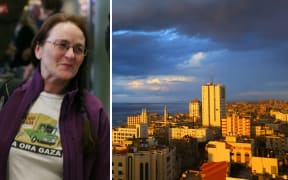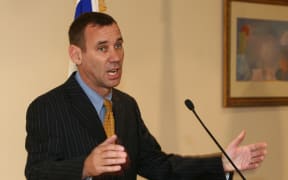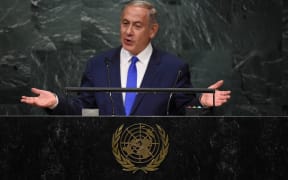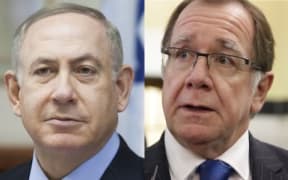Some 70 countries have reaffirmed only a two-state solution can resolve the Israeli-Palestinian conflict.
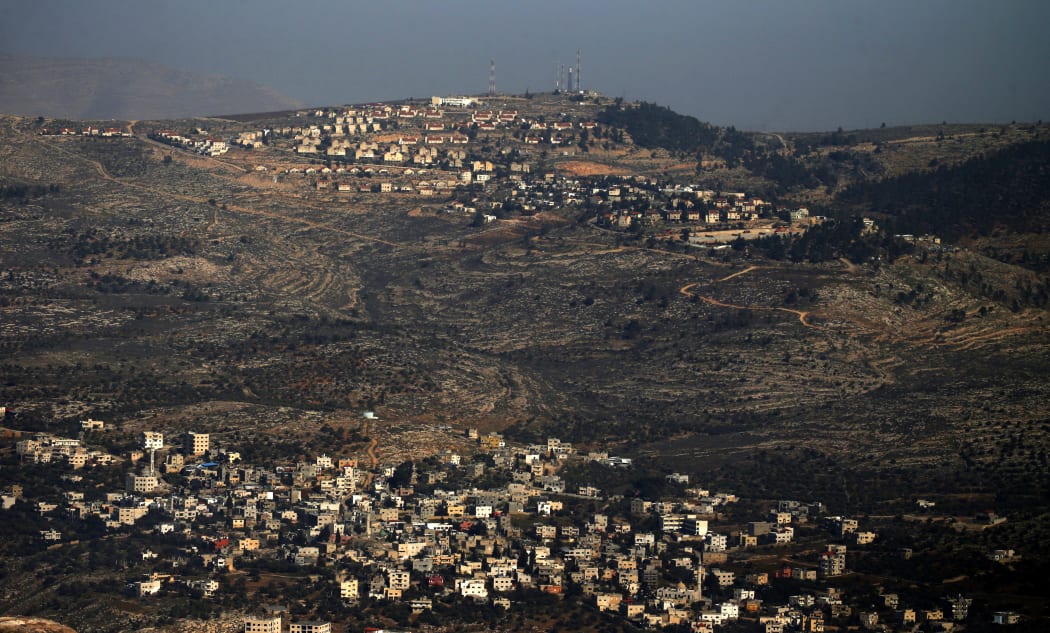
A picture, taken from Nablus, shows in the foreground the Palestinian West Bank village of Azmout and in the background the Jewish settlement of Elon Moreh. Photo: AFP
The final communique of a peace conference in Paris shied away from explicitly criticising plans by US President-elect Donald Trump to move the US embassy to Jerusalem, although diplomats said the wording sent a "subliminal" message.
The one-day international conference was held to try to kick-start peace talks between Israel and the Palestinians.
Mr Trump has pledged to pursue more pro-Israeli policies and to move the US Embassy from Tel Aviv to Jerusalem, all but enshrining the city as Israel's capital, despite international objections.
Countries including key European and Arab states, as well as the permanent members of the United Nations Security Council, were in Paris for the conference. Neither the Israelis nor the Palestinians were represented - Israeli Prime Minister Benjamin Netanyahu rejected the conference as "futile".
Just five days before Mr Trump is sworn in, the meeting was seen as a platform for countries to send a strong signal to the incoming American president that a two-state solution to the conflict could not be compromised.
The participants "call on each side ... to refrain from unilateral steps that prejudge the outcome of negotiations on final-status issues, including, inter alia, on Jerusalem, borders, security, refugees and which they will not recognise," the final communique said.
A French diplomatic source said there were tough negotiations on that paragraph.
"It's a tortuous and complicated paragraph to pass a subliminal message to the Trump administration," the diplomat said.
US Secretary of State John Kerry told reporters it would have been inappropriate to include the issue of moving the US embassy the final communique, with it being publicly debated in the US.
Relations between the United States and Israel have soured during President Barack Obama's administration, reaching a low point late last month when Washington declined to veto UN resolution 2334 demanding an end to Israeli settlements in occupied territory.
Paris has said the meeting did not aim to impose anything on Israel or the Palestinians and that only direct negotiations could resolve the conflict.
The final draft did not go into any details other than reaffirming UN Security Council resolutions, including 2334. Diplomats said that had been a source of friction in talks.
"When some are questioning this, it's vital for us to recall the framework of negotiations. That framework is the 1967 borders and the main resolutions of the United Nations," French Foreign Minister Jean-Marc Ayrault, told reporters.
Mr Kerry, who abandoned his efforts to broker peace talks in April 2014, told reporters the meeting had "moved the ball forward."
"It underscores this is not just one administration's point of view, this is shared by the international community broadly," he said.
Home to Europe's largest Muslim and Jewish communities, France has tried to breathe new life into the peace process over the past year and argued that it should not play second fiddle to the war in Syria and fight against Islamic State militants.
The final statement said interested parties would meet again before year-end.
Palestinian Authority President Mahmoud Abbas, who said on Saturday moving the US embassy to Jerusalem would kill off the peace process, said the Paris meeting would help stop "settlement activities and destroying the two-state solution through dictations and the use of force."
Sticking points
Despite years of on-off peace talks, major differences still separate Israel and the Palestinians.
Palestinians fiercely object to Israeli settlement activity in the occupied West Bank and East Jerusalem, territory it wants for a future state.
The settlements, home to about 600,000 Israelis, are considered illegal under international law, though Israel disputes this.
Israel says Palestinian incitement and violence, and a refusal to accept Israel as a Jewish state, are key obstacles to peace.
Other core issues include the future status of Jerusalem and the fate of millions of Palestinian refugees.
- BBC/ Reuters

